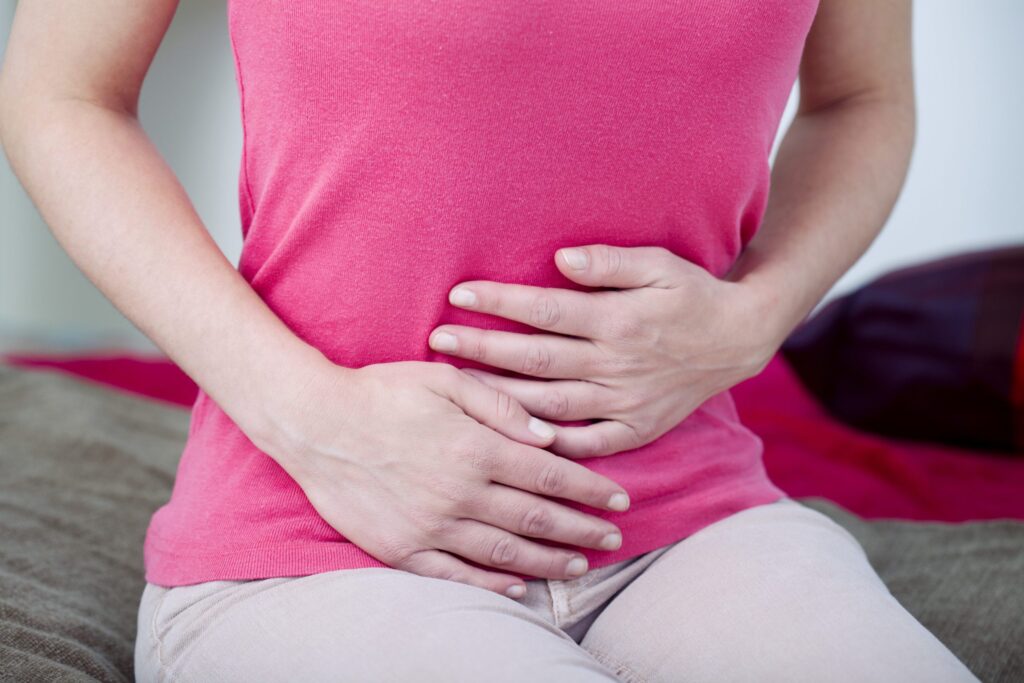Pelvic pain is pain experienced in the lower part of your abdomen and pelvis. Pelvic pain can range from mild to severe and can affect various aspects of life, including bowel and bladder function, digestion, pregnancy, sex, and even menstruation. This article addresses the most important questions concerning pelvic pain, including the leading causes, when you should be concerned about pelvic pain, and how physical therapy can help.
What is the most common reason for pelvic pain?
Listed below are the common causes of pelvic pain that can have a rapid onset, also known as acute pelvic pain.
- Ectopic pregnancy: An embryo grows outside of the uterus in an ectopic pregnancy. This is a medical emergency.
- Pelvic Inflammatory Syndrome: A complication of sexually transmitted diseases and, if untreated, may cause infertility in women. If you experience severe belly pain, a fever, and abnormal vaginal discharge, you may need to see a healthcare provider to receive treatment. Pelvic inflammatory syndrome is treated with antibiotics.
- Ovarian Cyst: Ranges from mild to severe in intensity. Sharp, shooting pain over your ovaries might indicate that an ovarian cyst might have ruptured. In this case, you should go to the ER to have a pelvic exam.
- Urinary Tract Infection: A UTI is caused by bacteria entering the urethra and urinary tract. Signs of a include frequent urination and a burning sensation with urination.
- Appendicitis: Appendicitis is an infected appendix, and if gone untreated, it can cause serious complications. Sharp pain in the lower right aspect of your abdomen may indicate appendicitis and requires medical treatment immediately.
Next are causes of pelvic pain that can have an onset over a longer duration and fall into the category of chronic pelvic pain.
- Menstrual contractions or cramps: Menstrual cramps are caused by the shedding of the lining of your uterus during your period. As the uterus tightens to push out the lining, it may cause menstrual pain and a cramping sensation in your lower back or pelvis.
- Endometriosis: In this pathology, tissue grows outside the uterus on the ovaries, fallopian tubes, bladder, or intestines. Unlike the uterus lining, this tissue has no pathway to exit the body and can cause complications, including pelvic pain and difficulty getting pregnant.
- Sexually Transmitted Disease: The two most common STDs are chlamydia and gonorrhea. Signs and symptoms of these two STDs include pain with urination, bleeding between periods, and abnormal vaginal discharge. If you suspect you have an STD, you should see a doctor and receive treatment for you and your partner.
- Uterine Fibroids: Uterine fibroids grow either on or inside the wall of your uterus. These fibroids are not cancerous. Typically, uterine fibroids are asymptomatic but occasionally can cause pelvic and abdominal pain. If that’s the case, consult with a doctor to discuss treatment.
- Irritable Bowel Syndrome: Although the medical community is still researching the exact cause of IBS, the symptoms remain clear: an unhappy colon. Signs and symptoms of IBS include abdominal discomfort, bloating, cramping, and fluctuation between diarrhea and constipation.
- Constipation: Signs and symptoms of constipation include decreased frequency of bowel movement (less than one bowel movement once every three days), hard, small stool, abdominal bloating and cramping, and difficulty passing stool.
- Cancers in the abdomen and pelvic tract: Cancers of the stomach and pelvis, such as cervical cancer, can present with a wide variety of signs and symptoms, including vaginal or rectal bleeding, any sudden weight loss or weight gain, pain that is most intense at night, and any sudden change to your bowel and bladder habits. If you are experiencing any of these symptoms, it is best to consult with your doctor to determine the source.
- Interstitial Cystitis: This pathology is inflammation of the bladder causing abdominal and bladder pain during urination.
What causes pelvic pain in women?
While in the can be experienced by both men and women, here’s what can cause it in women.
- Endometriosis: During the menstrual cycle, the uterus tissue breaks down. With endometriosis, this tissue breaks down during the menstrual cycle but grows outside of the uterus and has no way to be expelled from the body. This tissue can grow on the ovaries, fallopian tubes, bladder, and intestines.
- Ovarian Cyst: An ovarian cyst is a cyst either on or within an ovary, making it difficult for an egg to release during ovulation. Usually, ovarian cysts are mild in the intensity of symptoms, but occasionally they can burst to cause sudden severe pain.
- Ectopic Pregnancy: An embryo grows outside the uterus during an ectopic pregnancy. This medical emergency leads to sharp pelvic pain, cramps, and vaginal bleeding.
- Uterine Fibroids: These fibroids are noncancerous fibroid tumors that grow in or on the uterus wall. Sometimes this can cause pain in the lower abdomen, heavy periods, painful sex, and difficulty getting pregnant.
- Vulvodynia: Pain, irritation, burning, or itching on the outside of the vagina. Sometimes people with vulvodynia have difficulty with intercourse or problems wearing certain kinds of underwear and pants due to high levels of irritation.
- Painful Sex: There are many causes of painful intercourse. Possible causes include tightness in the pelvic floor muscles, an infection, a history of trauma, and difficulty relaxing during intercourse. A healthcare provider will be able to help you correctly diagnose the cause of your painful intercourse.
When should you worry about pelvic pain?
If you experience a new onset of pelvic pain or abdominal pain symptoms, it’s important that you consult a medical professional. Additionally, if you’re experiencing very intense and , this indicates that you may need the attention of a medical professional. See your doctor if your pelvic pain has started to disrupt your normal function or is gradually getting worse. Discomfort in the , whether or not, shouldn’t go unnoticed or untreated.
How Pelvic Floor Physical Therapy can help
A pelvic floor physical therapist can treat a wide variety of abdominal and pelvic pathology, including but not limited to:
- Constipation
- Urinary and bowel leakage
- Urinary frequency
- Pain with sex
- Pelvic pain
- Pathology associated with pregnancy
After a pelvic floor physical therapist has the opportunity to understand your story and assess your abdomen, pelvis, and surrounding joints, they can create a personalized treatment plan for you. In addition to exercises and manual therapy, your physical therapist will be able to provide you with tips, tricks, and hacks to modify your day-to-day life to decrease your pain and increase your function.
whether in the or abdominal can cause severe discomfort, but can provide great benefits. Pelvic floor physical therapy is an excellent opportunity to discuss your impairments in a judgment-free space and find relief from your pathology.
If you are not sure if pelvic floor physical therapy is for you, request a consultation with one of the compassionate team members at the Ivy Rehab Network who would be happy to meet with you and steer you in the right direction.
Article By: Nicole Vasiliu, DPT
Nicole began her career as a physical therapist four years ago and specialized in pelvic floor physical therapy in 2021. Nicole loves working with the pelvic floor patient population and believes in the importance of providing this specialized care to women of all age groups. Her favorite diagnosis to treat is pelvic pain and helping women reach their goals of pain-free intercourse! She currently treats patients at All Care Physical Therapy in Jackson, New Jersey.





